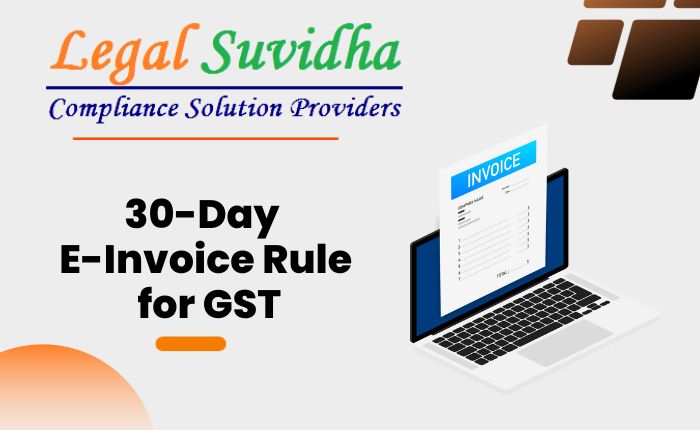Starting November 1, India’s Goods and Services Tax (GST) system will go through some important changes. One of the big changes is that there will be a strict rule that says businesses must issue e-invoices within 30 days under GST. This rule will affect businesses, especially the ones that make more than Rs. 100 crore.
Let’s take a closer look:
1. The 30-day deadline for E-Invoices: Under this new rule, businesses with turnovers exceeding Rs. 100 crore are mandated to issue their e-invoices within a precise 30-day window. Beyond this timeframe, these enterprises will no longer have the capability to generate e-invoices. What makes this rule particularly crucial is that failing to meet this deadline renders the transaction void, and those receiving the goods and services will lose their eligibility for input tax credit. This time-bound requirement represents a considerable departure from previous practices.
2. Compulsory Compliance: Unlike the previous system, which merely suggested that invoices be registered within a certain time frame, the new regulations make compliance with the 30-day deadline mandatory. This shift in approach is designed to ensure that businesses promptly issue e-invoices and rigorously adhere to the GST regulatory framework.
3. Two-Factor Authentication: Adding an extra layer of security, the introduction of two-factor authentication is another significant facet of the evolving GST landscape. To access the GST portal and carry out transactions, users will now need to provide more than just their typical login credentials; they will also be required to furnish a One-Time Password (OTP). This additional authentication step is enacted to safeguard taxpayer information and prevent unauthorized access.
4. The relevance of Two-Factor Authentication: Although the two-factor authentication requirement becomes effective on November 1st, it will exclusively apply to businesses with turnovers exceeding Rs. 20 crore. This authentication mechanism will primarily be implemented within the e-invoice and e-way bill systems, which are integral components of the GST infrastructure.
In Conclusion:
The implementation of the 30-day e-invoice deadline within the GST system marks a momentous shift in India’s taxation landscape. This rule aims to simplify and streamline the invoicing process while enhancing compliance, particularly among larger enterprises. Businesses with turnovers exceeding Rs. 100 crore must diligently adhere to this new requirement to avoid complications associated with input tax credit.
Additionally, the government has introduced a two-factor authentication system for big businesses (those with turnovers over Rs. 20 crore). This shows that the government is taking steps to protect data and prevent unauthorized access to the GST portal. These changes reflect the government’s dedication to making the GST system more transparent, efficient, and secure, which will benefit both businesses and the overall economy.
If You have any queries then connect with us at [email protected] or [email protected] & Contact us & stay updated with our latest blogs & articles










